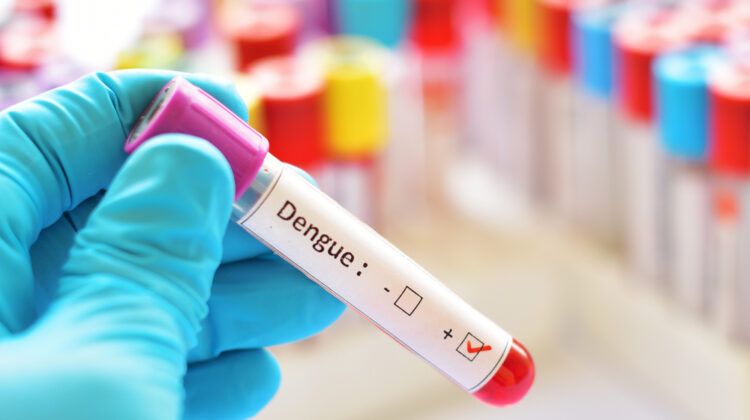Do not Let Dengue Bite! Learn the Dos and Don’ts

Dengue fever, a mosquito-borne viral illness, continues to be a major global health concern, especially in tropical and subtropical regions. With its potentially severe complications, prevention, and proper management are crucial. In this comprehensive guide, we will explore the dos and don’ts of dengue, equipping you with the knowledge needed to protect yourself and your loved ones from this debilitating disease.
Understanding Dengue
Before diving into the dos and don’ts, it is essential to understand the basics of dengue. Dengue is caused by the dengue virus, which is primarily transmitted to humans through the bite of the Aedes mosquito, particularly Aedes aegypti. This mosquito is known to be active during the daytime, making it different from the nocturnal Anopheles mosquito responsible for spreading malaria.
The symptoms of dengue can range from mild to severe, with the latter often referred to as severe dengue or dengue hemorrhagic fever (DHF). Common symptoms include high fever, severe headaches, joint and muscle pain, rash, and bleeding tendencies. In severe cases, DHF can lead to shock, organ failure, and death.
Dos in Dengue
- Prevent Mosquito Bites
- Use Mosquito Repellent: Apply an effective mosquito repellent on exposed skin and clothing, preferably one containing DEET, picaridin, or oil of lemon eucalyptus.
- Wear Protective Clothing: Wear long-sleeved shirts, long pants, socks, and shoes, especially during peak mosquito activity hours (dawn and dusk).
- Install Mosquito Nets: Sleep under mosquito nets, particularly if you live in or are visiting areas with high dengue prevalence.
- Use Window and Door Screens: Ensure windows and doors have screens to prevent mosquitoes from entering your living space.
- Eliminate Mosquito Breeding Sites
- Remove Standing Water: Regularly inspect your surroundings for containers, pots, or any items that may collect rainwater and empty them. Mosquitoes breed in standing water, so eliminating these breeding sites is crucial.
- Cover Water Storage Containers: If you have water storage containers, ensure they are tightly covered to prevent mosquitoes from laying eggs in them.
- Keep Gutters Clean: Clean and maintain gutters to prevent water accumulation.
- Change Water in Vases and Planters: Change the water in vases and planters frequently, as mosquitoes can breed in small amounts of water.
- Seek Medical Attention Early
- Recognize Symptoms: Familiarize yourself with the symptoms of dengue. If you or a family member experiences high fever, severe headache, pain behind the eyes, joint and muscle pain, rash, or bleeding, seek medical help immediately.
- Stay Hydrated: Drink plenty of fluids, such as water, oral rehydration solutions, and clear soups, to stay hydrated if you have dengue. Dehydration is a common complication.
- Follow Medical Advice: If diagnosed with dengue, follow your healthcare provider’s advice diligently. This may include bed rest, pain relievers (not containing aspirin or ibuprofen), and close monitoring of your condition.
- Protect Vulnerable Populations
- Pregnant Women: Pregnant women should take extra precautions to avoid mosquito bites and seek immediate medical care if they suspect dengue.
- Children and the Elderly: Children and the elderly are more vulnerable to severe dengue, so it is crucial to protect them from mosquito bites and ensure they receive timely medical attention if needed.
- Stay Informed
- Local Outbreaks: Stay updated on local dengue outbreaks and advisories issued by health authorities. This information can help you take appropriate precautions.
- Community Engagement: Participate in community efforts to reduce mosquito breeding sites and raise awareness about dengue prevention.
Don’ts in Dengue
1. Do not Ignore Symptoms
Self-Medication: Avoid self-medication with over-the-counter drugs like aspirin or ibuprofen if you suspect dengue. These drugs can worsen bleeding tendencies associated with the disease. Seek professional medical advice instead.
Ignoring Warning Signs: If you experience severe symptoms like persistent vomiting, severe abdominal pain, rapid breathing, or bleeding gums, do not hesitate to seek immediate medical attention. These could be signs of severe dengue or DHF.
2. Do not Rely Solely on Home Remedies
Herbal Remedies: While some home remedies may provide relief from mild dengue symptoms, they should not replace medical treatment. Consult a healthcare professional for proper diagnosis and management.
3. Do not Leave Water Containers Uncovered
Neglecting Standing Water: Neglecting standing water in and around your home can lead to mosquito breeding. Be diligent in emptying and covering containers to prevent mosquito reproduction.
4. Do not Delay Medical Consultation
Procrastination: Delaying medical consultation can worsen the course of the disease. Early intervention is key to preventing complications in dengue cases.
5. Do not Assume Immunity After One Infection**
Multiple Serotypes: Dengue is caused by four different serotypes (strains) of the virus. Having one serotype does not make you immune to the others. In fact, subsequent infections with different serotypes can increase the risk of severe dengue. Therefore, continue to practice preventive measures even after recovering from dengue.
In summary, dengue is a preventable and manageable disease if the right precautions are taken. Understanding the dos and don’ts in dengue is essential for individuals, families, and communities to protect themselves and reduce the spread of the virus.
Preventing mosquito bites, eliminating breeding sites, seeking early medical attention, and staying informed about local outbreaks are fundamental steps in dengue prevention and control. Additionally, it is crucial not to ignore symptoms, rely solely on home remedies, or delay medical consultation when dengue is suspected.
By following these guidelines and adopting a proactive approach to dengue prevention, we can collectively reduce the burden of this disease and contribute to healthier, safer communities. Remember that the fight against dengue requires a concerted effort from individuals, healthcare professionals, and public health authorities, but it starts with simple yet effective actions at the personal level. Stay informed, stay safe, and stay dengue-free.
